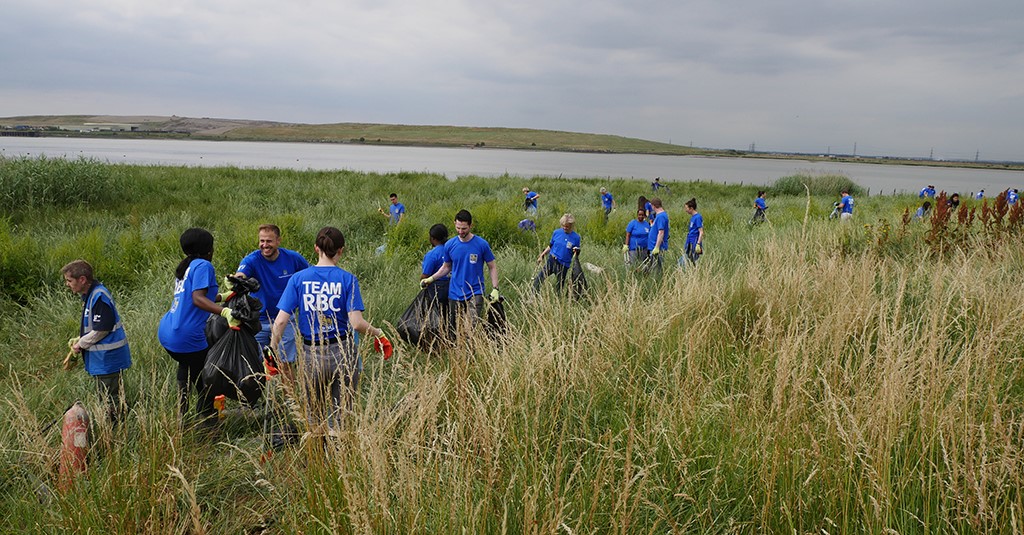The average Londoner accounts for 175 single-use water bottles every year, and extending that statistic across the whole of the UK, that’s 7.7 billion bottles1. Approximately eight million tonnes of plastic is now finding its way into our ocean each year2. At the current rate, by 2025 our ocean will contain one tonne of plastic debris for every three tonnes of fish3. And so, with single-use plastic bottles and their lids accounting for 10% of the litter along the Thames4, ZSL convinced RBC this was the right place to tackle the problem.

Determined to reverse these worrying trends, RBC volunteers organised themselves into groups to find, sort and count different types of plastic waste. This monitoring provides ZSL with an accurate annual metric on both the scale of the problem and an understanding of the positive impact volunteering can have. In this second year of the exercise, Team RBC was heartened that the quantity of single-use plastics collected had fallen by over half compared to 2018. But many factors such as weather and tidal flow can influence where litter ends up. What was clear to all though is that initiatives of this kind must continue, together with other schemes encouraging the use of re-usable food & drink containers and cutlery in the workplace.
#OneLess is a growing movement that strives to reduce the amount of single-use plastic water bottles entering the ocean from London. It champions initiatives that help reduce London’s reliance on single-use plastic water bottles and fosters a culture where using a refillable water bottle is the social norm. #OneLess works to ensure that the systems and infrastructure are in place across the city to support this vision.
1 BRITA. 2016. Survey of water bottle usage by UK Adults, with research by OnePoll. In collaboration with the Marine Conservation Society.
2 Jambeck, J. R., et al. 2015. Plastic waste inputs from land into the ocean. Science 347, 768-711
3 World Economic Forum. 2016. The new plastics economy: Rethinking the future of plastics.
4 Thames21. 2017. Pollution Monitoring Results. [Online]. [Accessed January 2018]. Available from: www.thames21.org.uk/thames-river-watch/pollution-monitoring-results/